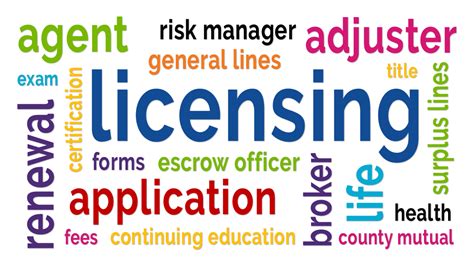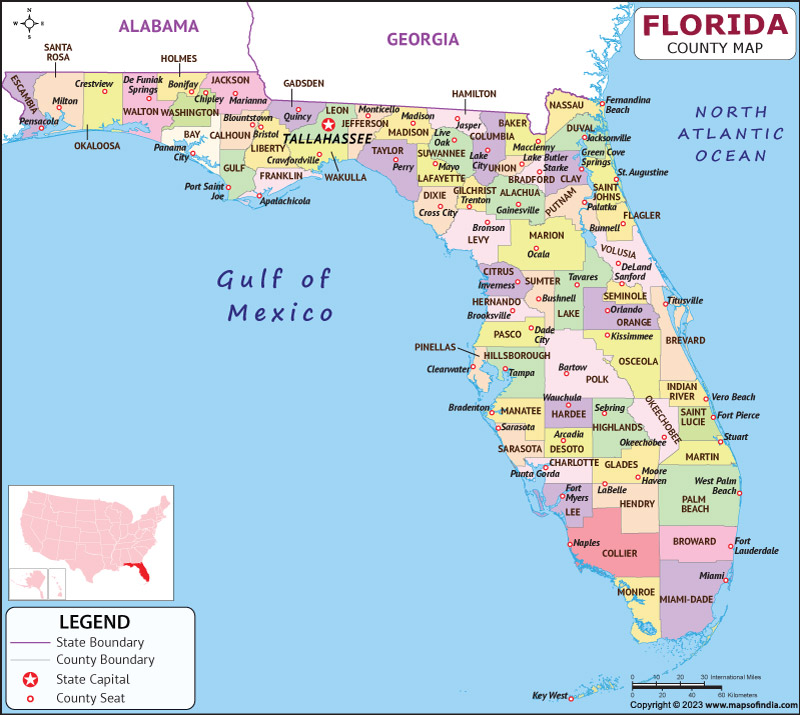Insurance Agent License

Obtaining an insurance agent license is a crucial step for individuals aspiring to enter the insurance industry and offer professional services to clients. This comprehensive guide will delve into the process of acquiring an insurance agent license, exploring the requirements, steps involved, and the key considerations to ensure a successful and seamless journey toward becoming a licensed insurance professional.
Understanding the Insurance Agent License

An insurance agent license is a legal authorization that permits an individual to act as a representative and offer insurance products and services to the public. This license ensures that the agent has met the necessary educational, examination, and ethical standards set by the regulatory bodies in the insurance industry.
The insurance agent license is not a one-size-fits-all qualification. Different states and countries have their own unique licensing requirements, which often include specific education and examination components. Understanding these requirements is essential for anyone aiming to embark on a career in insurance sales.
Why Pursue an Insurance Agent License
The insurance industry is vast and offers a myriad of opportunities for professionals with the right skills and qualifications. By obtaining an insurance agent license, individuals can unlock a world of possibilities, including:
- The ability to sell a variety of insurance products, such as life, health, property, and casualty insurance.
- Access to a stable and growing industry, with insurance being a vital part of financial planning for individuals and businesses.
- Opportunities for self-employment and entrepreneurship, as many insurance agents run their own agencies or work as independent contractors.
- A fulfilling career that involves helping clients protect their assets, manage risks, and achieve their financial goals.
Prerequisites for Obtaining an Insurance Agent License

Before diving into the licensing process, it's essential to ensure that you meet the basic prerequisites. These prerequisites may vary slightly depending on the state or country, but generally include:
- Age Requirement: Most jurisdictions require insurance agents to be at least 18 years old. Some states may have a minimum age of 19 or 21.
- High School Diploma or Equivalent: A high school diploma or its equivalent, such as a GED, is often a fundamental requirement. This ensures that prospective agents have a basic level of education.
- Clean Criminal Record: Insurance companies and regulatory bodies conduct background checks to ensure that agents have a clean criminal record. Any criminal convictions may impact your eligibility for a license.
- Residency Status: Some states may require you to be a resident or have specific residency requirements for licensing. It's important to check the regulations in your state.
Educational Requirements
Educational requirements for insurance agent licensing vary widely across jurisdictions. While some states may only require a high school diploma, others may mandate completion of specific pre-licensing education courses. These courses cover a range of topics, including:
- Insurance Principles and Concepts
- Ethics and Professional Conduct
- Insurance Law and Regulations
- Risk Management and Underwriting
- Sales and Marketing Techniques
The duration and format of these courses can also vary. Some states offer online courses, while others may require in-person attendance. The cost of these courses can range from a few hundred to a few thousand dollars, depending on the provider and the extent of the curriculum.
Exam Preparation
After completing the necessary education, the next step is to prepare for the licensing exam. This exam assesses your knowledge and understanding of insurance principles, regulations, and ethics. It's a critical step in the licensing process and requires thorough preparation.
There are numerous resources available to help you prepare for the insurance licensing exam. These include:
- Study Guides: Many states provide official study guides that outline the topics covered in the exam. These guides are an excellent starting point for your preparation.
- Practice Exams: Utilizing practice exams is an effective way to familiarize yourself with the format and content of the actual exam. Many exam preparation platforms offer practice questions and full-length practice exams.
- Review Courses: Consider enrolling in a review course specifically designed for insurance licensing exams. These courses provide comprehensive coverage of exam topics and often include access to additional study materials.
Applying for the Insurance Agent License
Once you've completed the necessary education and feel prepared for the exam, it's time to apply for your insurance agent license. The application process typically involves the following steps:
- Complete the Application Form: Obtain the official application form from your state's insurance department or regulatory body. Fill out the form accurately and provide all the required information, including personal details, educational background, and any relevant work experience.
- Submit Required Documents: Along with the application form, you'll need to submit supporting documents. This may include a copy of your high school diploma or equivalent, proof of residency, and any other documentation specified by your state's regulations.
- Pay the Application Fee: Insurance licensing applications typically come with a fee. The amount varies by state and may range from $50 to $300 or more. Make sure to pay the fee as specified by your state's regulations.
- Schedule the Licensing Exam: Contact the designated exam administrator to schedule your licensing exam. This could be a state-run agency or a third-party testing service. Ensure you understand the exam format, duration, and any specific requirements for the testing environment.
The Licensing Exam
The insurance licensing exam is a critical milestone in your journey toward becoming a licensed agent. The exam assesses your knowledge and understanding of insurance principles, regulations, and practices. It's designed to ensure that you have the necessary expertise to provide ethical and professional services to clients.
The exam format can vary depending on your state or country. It may be a computer-based test or a traditional paper-and-pencil exam. The duration of the exam also varies, but it typically ranges from 2 to 4 hours. The number of questions can range from 50 to 200, and the passing score is often set at 70% or higher.
After completing the exam, you'll receive your results. If you pass, you'll be one step closer to obtaining your insurance agent license. If you don't pass, you may have the opportunity to retake the exam after a specified waiting period.
Post-Exam Process
After successfully passing the licensing exam, you'll need to complete a few additional steps to finalize your insurance agent license:
- Fingerprint Background Check: Some states require you to undergo a fingerprint background check as part of the licensing process. This ensures that you have a clean criminal record and meets the ethical standards for the insurance industry.
- Obtain Required Bonds and Insurance: Depending on your state's regulations, you may need to obtain certain types of bonds or insurance policies, such as an Errors and Omissions (E&O) insurance policy, to protect your clients and your business.
- Affiliating with an Insurance Company: Most insurance agents work as independent contractors or representatives of insurance companies. Once you've obtained your license, you'll need to affiliate with an insurance company to begin selling their products.
Maintaining Your Insurance Agent License
Obtaining an insurance agent license is just the beginning. To remain in good standing and continue practicing as an insurance professional, you must meet ongoing licensing requirements, including:
- Continuing Education: Most states require insurance agents to complete a certain number of continuing education (CE) hours annually or biennially. These CE hours ensure that agents stay up-to-date with industry changes, new regulations, and best practices.
- Renewal Fees: Insurance agent licenses typically have an expiration date, and you'll need to pay a renewal fee to keep your license active. The renewal fee amount and frequency can vary by state.
- Ethical Conduct: Insurance agents are held to high ethical standards. It's essential to maintain integrity and professionalism in your practice to avoid disciplinary action or license revocation.
Expanding Your Insurance Knowledge
The insurance industry is constantly evolving, with new products, regulations, and technologies emerging. To stay ahead of the curve and provide the best service to your clients, consider pursuing additional certifications and designations. These can enhance your expertise in specific areas of insurance and open up new career opportunities.
Some popular insurance designations include:
- Certified Insurance Counselor (CIC): A designation for agents who want to enhance their knowledge of risk management and insurance practices.
- Chartered Property Casualty Underwriter (CPCU): Focuses on property and casualty insurance, providing a deep understanding of underwriting and risk management.
- Life Underwriter Training Council Fellow (LUTCF): Geared towards life insurance agents, offering advanced training in life and health insurance products.
FAQs

What is the average cost of obtaining an insurance agent license?
+The cost of obtaining an insurance agent license can vary significantly depending on your state and the type of insurance you plan to sell. On average, you can expect to spend between $200 and $500 on exam fees, application fees, and education requirements. However, these costs can be higher in some states or if you choose to pursue additional certifications.
How long does it typically take to become a licensed insurance agent?
+The time it takes to become a licensed insurance agent can vary based on several factors, including your state's licensing requirements and your study habits. On average, you can expect the process to take anywhere from 2 to 6 months. This includes completing pre-licensing education, preparing for and taking the exam, and finalizing the licensing application.
Can I work as an insurance agent without a license?
+No, it is illegal to work as an insurance agent without a valid license. Selling insurance products without a license is considered unauthorized practice, and you may face severe penalties, including fines and even imprisonment in some jurisdictions.
Are there any online resources for insurance agent license exam preparation?
+Yes, there are numerous online resources available to help you prepare for the insurance agent license exam. These resources include study guides, practice exams, video tutorials, and interactive courses. Popular platforms for exam preparation include ExamFX, Kaplan Financial Education, and 360training.com.
What happens if I fail the insurance agent license exam on my first attempt?
+If you fail the insurance agent license exam on your first attempt, you will typically have the option to retake the exam after a waiting period. The waiting period can vary by state, ranging from 30 days to several months. It's important to thoroughly review your mistakes and focus on areas where you struggled during your next attempt.
Obtaining an insurance agent license is a rewarding journey that opens doors to a stable and meaningful career in the insurance industry. By meeting the necessary prerequisites, completing educational requirements, and passing the licensing exam, you can become a trusted advisor to your clients, helping them navigate the complex world of insurance.
Remember, the insurance industry is constantly evolving, and staying up-to-date with new regulations and products is crucial. Embrace ongoing learning and professional development to ensure you provide the best service to your clients and remain a valued member of the insurance community.



